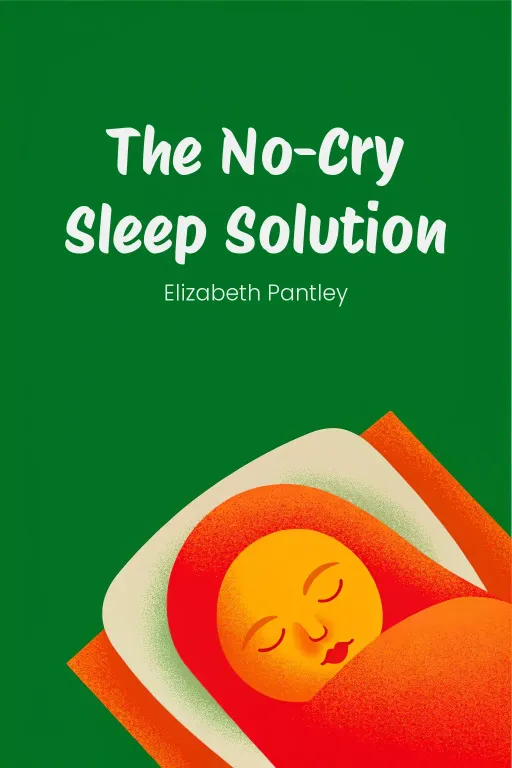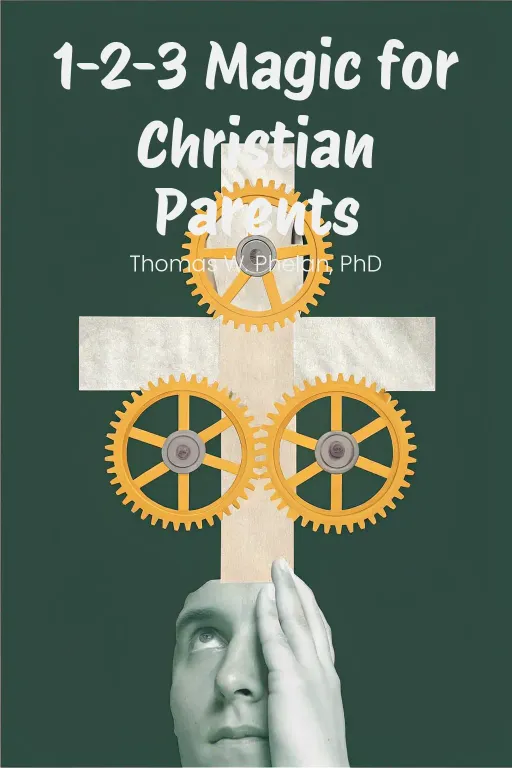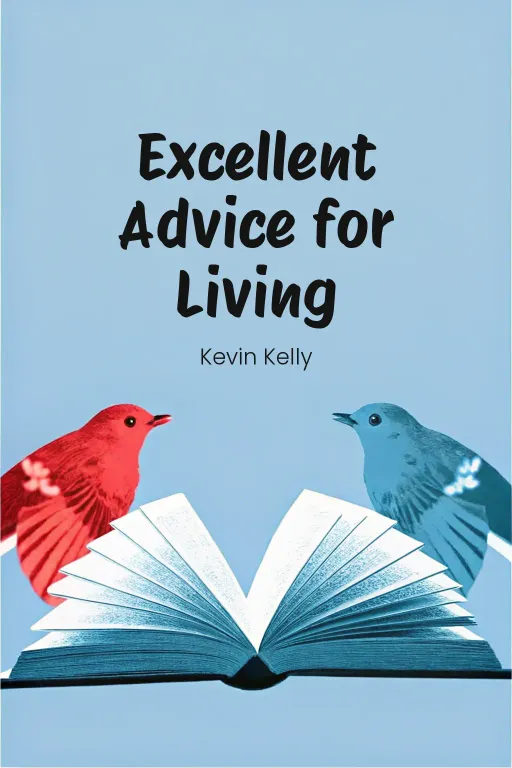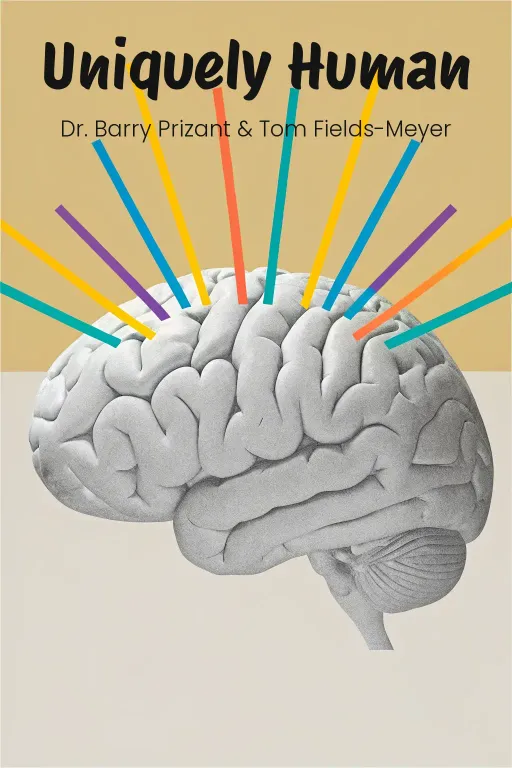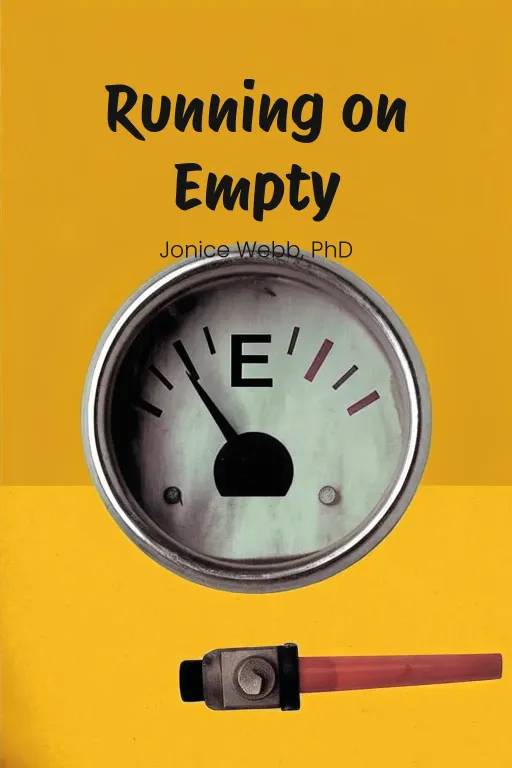
Sleep Sanity: Gentle Baby Sleep Hacks
Podcast by The Mindful Minute with Autumn and Rachel
Sleep Sanity: Gentle Baby Sleep Hacks
Part 1
Autumn: Hey everyone, welcome back! Today we're tackling a topic near and dear to every new parent's heart: baby sleep… or the frustrating lack thereof. Sound familiar? Rachel: Oh, very familiar. If you’ve ever found yourself bleary-eyed, searching the internet at an ungodly hour, wondering, "Will I ever sleep again?", you're definitely in the right place. I sometimes suspect my baby thinks my sleep schedule is a personal art project. Autumn: Exactly! Well, today we're diving into why it feels like these tiny little people are actively conspiring to destroy our sanity one sleepless night at a time. Fortunately, we've got a fantastic guide: Elizabeth Pantley’s "The No-Cry Sleep Solution." Rachel: "No-Cry"? Sounds almost too good to be true, doesn't it? Autumn: It's definitely not a magic wand, but it is a practical approach. It's not one of those rigid, do-it-this-way-or-else sleep training books. It’s packed with flexible, science-backed strategies. The key is that it’s designed for parents who want more sleep, but also want to maintain a strong, loving connection with their baby. Rachel: Okay, I'm intrigued. So, what's on the agenda today? Autumn: We're breaking it down into three main points. First, we’re going to demystify why babies sleep the way they do – in those maddening, unpredictable patterns that have us questioning our life choices. Spoiler alert: it's mostly biology. Rachel: Good, so I can blame genetics, not my parenting skills. I like that. Autumn: Then, we'll dig into Pantley’s specific, gentle techniques for tackling those relentless nighttime wake-ups. It’s all about making small, sustainable changes that lead to better sleep, gradually. Rachel: A "gentle path," eh? And finally? Autumn: My favorite part: Why taking care of your well-being isn’t selfish – it’s absolutely essential. Because a happy, rested parent equals a better night for everyone. Rachel: Preach! So, we're basically talking about putting on our own oxygen masks first, baby edition? Autumn: Exactly! Stick with us as we explore the ins and outs of baby sleep, from tracking data to making meaningful tweaks to your bedtime routine. You are definitely not alone in this. And I promise, there is light at the end of the tunnel. Rachel: Let's just hope that light isn’t the glare of a baby monitor at 3 AM. Alright, let's get started!
Understanding Infant Sleep Patterns
Part 2
Autumn: Okay, now that we’ve laid the groundwork, let's dive into the core mystery: Why do babies sleep in these short, unpredictable bursts, leaving parents in a constant state of exhaustion? And, no, it’s not designed to torture us. Rachel: Seriously? You're telling me a being that’s completely reliant on us somehow “chooses” to wake up every hour? Sounds more like some kind of initiation ritual. Autumn: I hear you, Rachel. It feels personal, doesn't it? But it's not. Infant sleep is a whole different world compared to adult sleep. Let's start with sleep cycles. Where we adults have those nice, long 90-minute sleep phases that alternate between light and deep sleep, a baby’s cycles are only about 50-60 minutes. And a big part of that is light sleep, also known as active sleep. Rachel: Active sleep? That sounds like the opposite of what sleep is supposed to be. Autumn: Exactly! But here's the thing: active sleep is crucial for their development. During this stage, a baby's brain is working overtime, forming connections and processing information from their surroundings. That's why they're so easily disturbed during this time. It's not a flaw; it's intentional design! Rachel: So, all those times my daughter seemed to have a sixth sense for when I was trying to sneak out of the room—that was just… brain growth in action? Autumn: Precisely! And that moment when they wake up during lighter sleep stages is also where patterns begin to form. If babies start associating falling back asleep with nursing, rocking, or some other external cue, they’ll naturally wake up expecting the same conditions they had when they first dozed off. Rachel: Right, "the midnight snack and lullaby service." And here I thought my baby was just negotiating better room service terms. Okay, so we've established that fragmented sleep and Houdini-level wake-ups are inevitable. But what about this whole circadian rhythm thing? When does it finally kick in and give parents a fighting chance? Autumn: Excellent question! Newborns don’t have a mature circadian rhythm—the internal clock that tells us when to sleep and wake based on light and dark. That's why they sleep in short bursts around the clock, day or night. Around six to nine weeks, they start producing melatonin, the sleep hormone that helps align their sleep with darkness. And by the four-to-five-month mark, most babies are starting to develop a day-night pattern. Rachel: So, before that magical realignment, parents are essentially running on caffeine and hope? Autumn: Pretty much, yeah. Plus, a healthy dose of self-doubt, probably. You know, parents like Emily, the one from the text who was worried about balancing work with sleepless nights? Learning the science behind her baby’s development actually helped her a lot. She realized that her child’s erratic sleep wasn’t her fault, but rather biology at work. Rachel: I can only imagine the relief that brought her. It's like getting a hall pass that says, "You’re not failing. Babies just don’t come with an off switch.” Autumn: Exactly. And speaking of babies waking up, let's talk about one of the biggest reasons for those frequent interruptions: night feedings. Unlike adults, infants have tiny stomachs that don’t hold much. They literally need to wake up every two to three hours to refuel, especially in the early months. Rachel: So, the idea of a baby “sleeping through the night” is kind of a cruel myth for sleep-deprived parents, isn’t it? Autumn: It really is. Most people don’t realize that medically, “sleeping through the night” just means a solid five-hour stretch, which probably feels like a dream at that stage but isn't quite the eight-hour marathon most parents are hoping for. Recognizing that those wake-ups are nutritional necessities can also help reframe how you feel about it, right? It’s less about "Why is this happening?" and more about "How can I adapt?" Rachel: And adapting goes beyond just accepting the wake-ups, doesn't it? There’s also this whole minefield of overtiredness you mentioned earlier. How does that work, exactly? Because, in my house, it felt like my kid thrived in chaos and exhaustion. Autumn: Oh, the overtired baby is a classic! Here’s the deal: when babies stay awake too long, they don’t get sleepier in a "wear themselves out" kind of way. Instead, they get wired. Their bodies release stress hormones like cortisol, making it harder for them to settle and stay asleep. It's the opposite of what you'd expect. Rachel: So, keeping a baby awake in the "hope" of a better night is like trying to solve a math problem by banging your head on the calculator. I get it. Autumn: Pretty much. That’s why daytime naps are so important. They aren’t just for giving parents a break, but a reset for the baby’s brain. When parents like Leesa tracked their baby’s day and night patterns, she noticed that more consistent naps led to fewer night wakings. It wasn’t instant, but it definitely worked. Rachel: Okay, naps I can get behind. But here’s what “really” gets me—what happens during those inevitable sleep regressions? Growth spurts, separation anxiety… it feels like every time you figure something out, babies throw another curveball at you. Autumn: Because, like everything else in infancy, sleep is constantly changing. Around the nine-month mark, for instance, separation anxiety peaks. Babies become more aware of the presence—or absence—of their caregivers. It’s an evolutionary survival mechanism, but it sure doesn’t feel like that when you’re on your fourth straight night of sleep disruptions. Rachel: Right, so survival instincts equals less survival-friendly nights for parents. It’s almost poetic... in a twisted way. Autumn: True. But those fluctuations are temporary. With consistent, empathetic responses—like offering comfort without creating new dependencies—babies gradually stabilize again. The key is “really” recognizing these phases for what they are: normal developmental steps. Rachel: Alright, so we’ve covered the why—short sleep cycles, evolving rhythms, and biological necessities like night feeds, yeah? Honestly, it’s fascinating to think of all this sleeplessness as part of some grand design. Still, it seems like understanding it is step one, but solving it—or at least making it a little easier—that’s where the strategies come in, right?
Gentle Sleep Solutions
Part 3
Autumn: So, Rachel, now that we have a good understanding of how babies sleep, let's dive into the practical side of things. What everyone really wants to know is how to handle those sleepless nights without resorting to the cry-it-out method. What exactly are these “gentle sleep solutions” all about? Rachel: Exactly! Right, so how do we actually make this work? How can we handle sleepless nights without, you know, feeling like total monsters? Autumn: That's where Pantley's approach “really” shines. Gentle sleep solutions are all about creating strategies that prioritize empathy and connection with your baby. So, we're moving beyond just the why of baby sleep to the how – practical tools that help parents encourage better sleep without the tears and the guilt. It’s like finding that sweet spot where compassion meets realistic solutions. Rachel: Okay, so let's get practical. What can parents do to make their baby's room more conducive to sleep? Surely, it's not just about putting them in a comfy crib and hoping for the best... right? Autumn: Definitely not! Think of a baby’s sleep environment as a carefully orchestrated performance—every element needs to be in harmony. One of Pantley’s key recommendations is minimizing light disruptions. Babies need clear signals for day and night, so blackout curtains can be a game-changer. They keep the sleep space consistently dark, especially during naps and those early mornings. Rachel: Blackout curtains… Blocking out the literal darkness and the metaphorical chaos that comes with having a baby, I guess. Autumn: Precisely! And then there's sound. Noise plays a huge role in sleep quality. Pantley suggests white noise machines, or even just a simple fan or a consistent hum. These can mask those random, startling sounds, like traffic or barking dogs. She even tells a story about a mom named Tanya whose baby Chloe was soothed by the sound of an aquarium. Rachel: An aquarium? So, Chloe wasn't just sleeping better; she was probably learning more about marine biology than I did at six months old! Autumn: Pretty much! The aquarium sounds mimicked the rhythmic noises of the womb, which had a calming effect. Tanya ran with it and made it part of Chloe’s sleep routine, and it worked wonders. Rachel: Okay, so blackout curtains, womblike white noise... we haven't even touched on temperature yet. Is there a Goldilocks zone for baby sleep? You know, not too hot, not too cold? Autumn: Absolutely, there is! Pantley recommends keeping the room between 68 and 72°F (20-22°C). Cool enough for comfortable sleep, but warm enough to avoid chills. And breathable, lightweight fabrics are your best friends—for bedding and baby clothing. Overheating is actually a surprisingly common cause of wake-ups. Rachel: That's good to know. And what about the visual aspect? Should the sleep space be as minimalist as possible? Autumn: Yes! Pantley stresses the importance of reducing visual distractions in the room. Babies can easily become overstimulated if their sleep area is cluttered with brightly colored toys or moving objects. Ideally, the crib should send a clear signal: "This is where rest happens." If you clear the noise, both visually and emotionally, it’s much easier for the baby to settle down. Rachel: Makes sense. Though, I'm sure some parents will feel conflicted... like, "Do I “really” have to remove that adorable stuffed giraffe in the name of better sleep?" Autumn: Well, if better sleep is the goal, that giraffe might need a temporary vacation, at least! But don't worry, we're not taking all the comfort away. Let's talk about comforting bedtime routines, which can be just as transformative. Rachel: Right, routines. Let me guess – these aren't your basic "brush your teeth and call it a day" type routines. What's the secret sauce? Autumn: Consistency, but in a soothing, predictable way. Pantley shares an example about a mom, Jamie, who completely transformed evenings with her daughter through a series of calming activities: a warm bath, a lavender-infused baby massage, and quiet story time. Eventually, these steps became signals that sleep was coming, and her daughter started anticipating them… and cooperating! Rachel: So, Jamie basically turned bedtime into a spa retreat. That's a far cry from my childhood bedtime routine, which was mostly "Put your Gameboy down now or else." Autumn: Ha! Well, the key here is creating positive associations with bedtime. If the routine is relaxing and predictable, it reduces resistance over time. It’s that predictability that’s so soothing for babies – they really thrive on patterns. Rachel: This predictability thing seems to come up over and over again in parenting. It's like they're just tiny control freaks. Autumn: You could see it that way! But really, babies feel most secure when their world is understandable and dependable. The bedtime routine essentially tells their brains, "The day is done, now it's time to rest." Screens or energetic play right before bedtime completely throw off that message. Rachel: Noted: no evening marathons of Cocomelon. Got it. But routines only get you so far, right? What about babies who rely on things like nursing or pacifiers to fall asleep? How do parents gently wean them off those sleep props without sending everyone into a spiral? Autumn: This is where Pantley's Gentle Removal Plan comes in—it’s a brilliant strategy for reshaping sleep associations gradually. The idea is to nudge babies towards self-soothing while still meeting their needs in a compassionate way. Rachel: Okay, so how does one “nudge compassionately”? Autumn: Let's use breastfeeding as an example. If a baby only falls asleep while nursing, parents can start by unlatching the baby just before they fall into a deep sleep. It’s a gradual process – doing this a little earlier each time helps the baby transition into sleep independently, without a dramatic disruption. Rachel: Clever. No dramatic midnight protests, just subtle adjustments that baby barely notices. Autumn: Exactly. And the same principle applies to pacifier reliance. Pantley suggests something as simple as placing multiple pacifiers in the crib, so babies can learn to find and use them on their own. Rachel: So, from external soothing to mini DIY sleep solutions – empowerment starts in the crib. Autumn: Exactly! That’s the heart of Pantley’s philosophy: empowering babies to discover their own sleep skills within a framework of emotional security. It's both practical and respectful. Rachel: Okay, let's throw a wrench into this plan - what happens when developmental changes, or external factors throw everything off? Teething, or the lovely separation anxiety you mentioned earlier? Autumn: Ah, the sleep disruption curveballs! These are normal, but maddening. Pantley emphasizes flexibility—adding comfort without scrapping your routines altogether. For example, during teething, parents might need to extend cuddle times or soothe with a gentle touch. But the key is not reintroducing habits you've worked hard to phase out, like constant rocking or feeds. Rachel: So, roll with the punches, but don't abandon your foundation. Makes sense. It feels like the common thread is patience – because progress isn't linear, is it? Autumn: Exactly. Sleep progresses in fits and starts. One night, the baby might sleep soundly, and the next, it’s a full regression. But with consistency—paired with compassion—you build long-term habits, even if it feels messy in the short term. Rachel: So besides investing in blackout curtains and that metaphorically wise aquarium, the key ingredient here is empathy and adaptability, and this “gentle” approach isn’t just passive - it’s actually a lot of “really” thoughtful work. Autumn: Absolutely, Rachel. Gentle sleep solutions are about long-term wins—for both baby and parent. These strategies put connection first and show that improving sleep doesn’t have to come at the cost of your bond.
Parental Well-Being and Long-Term Success
Part 4
Autumn: Right, Rachel. We've covered a lot of ground on sleep techniques, but there's this crucial layer of parental well-being beneath it all, you know? It's like, if the parents are running on empty, none of the sleep solutions really stick long-term. Rachel: Yeah, I'm with you. Sleepless nights are tough, and parental sanity is the armor. And let's be honest, most parents have been there – the sheer exhaustion of it all. How does being in that survival mode really impact your ability to parent effectively? Autumn: It's huge. Sleep deprivation isn’t just being tired, it’s like a fog that messes with your judgment and makes you so irritable, you know? I remember in “The No-Cry Sleep Solution,” there was this mother who felt completely disconnected because she was so drained. That feeling is so common. Rachel: Right, and then the guilt kicks in, doesn't it? "Am I doing enough? Am I a bad parent for feeling this way?" Then you throw in work or other stresses, like that mother in the book, and it's a perfect storm. Autumn: Exactly! And physically, it's draining. Constant fatigue, trouble focusing, and even a weaker immune system. It’s a domino effect—if you are in the red zone, how exactly do you care for a child? Rachel: Okay, so the first step is realizing that your own well-being isn't optional. But for parents deep in this, what's the actual plan? How do they start digging themselves out? Autumn: What I thought was great about Pantley’s strategy is that it’s a mix of mindfulness, realistic self-care, and building a support system. It’s all about small steps, you know? Like, even a simple breathing exercise can help calm you down. Rachel: A breathing exercise? Seriously? I can just see some parents rolling their eyes. What's four deep breaths going to do when the baby's screaming? Autumn: I get it! But, those kinds of breathing exercises can be helpful. That can lower stress and give you some mental clarity. It makes you deal with the screams in a more relaxed state rather than in panic and irritation. Rachel: Okay, that makes sense. So breathing exercises don’t fix the sleep, they just help you to deal with it. What about journaling? Pantley talks about that, so how does that fit in? Autumn: Journaling helps you sort through your feelings in a way that is helpful. Writing down what happens helps even in the middle of the chaos. I think one mother noted how writing down even small steps—like her baby sleeping for one extra hour—helped her feel happy. Rachel: So, it's less about writing a parenting memoir and more about finding clarity – like, "Hey, we are making progress, even if it's super slow.” Autumn: Yeah, exactly. And then there's self-care, but not in a fancy spa-day kind of way. More like finding small ways to recharge throughout the day. Like, could you drink tea uninterrupted for five minutes or listen to a favorite song. Rachel: Okay, so we're lowering the bar here. It's not about Instagram-worthy self-care; it's about finding what refills your tank, even in tiny sips. Autumn: What’s also important is to celebrate the small things. It makes it easier to stay where you need to be when you see there is progress. For example, did nap times extend by 15 minutes this week? That’s a win. Rachel: I like that. Changing your brain into focusing on what's working instead of what's not. What about support systems? I think parents feel isolated because of their journey. Autumn: Isolation just makes everything harder. Pantley really stresses how important having a community is. I think one case was about a mom who felt bad because her baby was waking up a lot. But by being in a group for parents, she got practical help. But it’s that sense that, “Me too!” That can calm people down. Rachel: But what if you don't have that village? I mean, parenting groups aren't always easy to find or get to. Autumn: Good point. Support doesn't have to be a formal group. It could be online, a friend, or splitting duties more with your partner. Even small things—coffee with a friend or asking a neighbor—can help. Rachel: Right, and partners have to work together. It can be sleep training; it can be midnight duty. It works better when there is an understanding of the work that has to get done. Autumn: Definitely. Pantley talks about open communication. Sometimes, one partner feels they need to “fix” things, but that can make the partnership stronger. It is good to have regular times to check in; that way, you share goals and emotional burden. Rachel: A ten-minute debrief where one partner says, "I handled it last night, so it's all on you tonight," you know? Shared pain, shared gain. Autumn: Yeah. Otherwise, built-up anger will make things worse if one person feels stuck. It's not only good for getting things done to have support; it also makes you closer since you are working together. Rachel: So, it sounds like the main thing is balance. Not only balancing sleep but also balancing caregiving. And self-compassion. Autumn: Totally. It’s important to be flexible and have self-compassion. When her toddler started sleeping bad during the upheaval, she cuddled with it more without ruining progress. Rachel: So, progress isn't always perfect. You can change as long as you know what your eventual path is. Autumn: Exactly. Being flexible doesn’t show failure. It just shows that you can adjust to life instead of panicking. That being able to adapt is what will hold families together. Rachel: The main pillar is not just for the baby, but the parents. Autumn: Yes, that is it. You have to extend that not only to your child but also to yourself too. Parenting changes a lot, so you have to course-correct. Rachel: Let's recap. You have breathing exercises, easy ways to self-care, the need for support, and taking it easy on yourself. It might be a lot, but if you take the first step at least, it feels doable. Autumn: Yeah, and it is more humane. It's not about being exhausted; it's about changing what you expect and making the journey have support and compassion. Rachel: So, there you go. Family well-being is a reward and a strategy.
Conclusion
Part 5
Autumn: So, wrapping things up, we've really dug into why those first few months can feel like a never-ending series of sleepless nights – everything from those short baby sleep cycles to their still-developing circadian rhythms. We've looked at gentle techniques that blend a parent's need for sleep with the baby’s needs and stressed the importance of self-care and building a support system for new parents, because, let's be honest, it's a marathon, not a sprint. Rachel: Right, and if there’s one key takeaway here, it’s that progress is better than striving for perfection. I mean, baby sleep is inherently messy, unpredictable, right? It's just throwing curveballs at you constantly. But understanding the “why” behind it all and responding with caring strategies can really shift things. Autumn: Exactly. It’s not about finding a one-size-fits-all quick fix, but more about laying that solid foundation built on empathy, creating trust, and heaps of patience – and that goes for both baby and parent. Rachel: And, you know, maybe investing in some good blackout curtains wouldn't hurt either. Or perfecting that white noise playlist. Autumn: Definitely. It’s not a straight line; there will be good days and bad days. Don’t see success as achieving some flawless outcome, but more in terms of how well you respond to your baby, and yourself, with compassion along the way. Rachel: Yeah, and remember, sustainable progress is the real win here. Even if that just means celebrating with a quiet fist bump at 3 AM when you finally get down to just one wake-up a night. Autumn: Totally. You've got this, parents. Grab some rest whenever you can, find the humor when things get tough, and really just embrace the whole journey. Progress, not perfection – that’s “really” the key. Remember that! Rachel: Alright, now go and make that cup of tea, or sneak in a quick nap – you absolutely deserve it.



